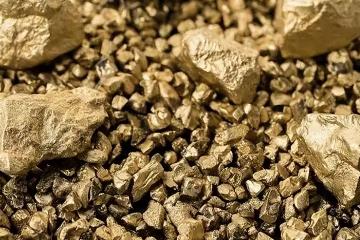Surge in Foreign Rare Earth Mineral Production!
Advertisements
The global landscape of rare earth elements (REE) is marked by a major player in China, a nation recognized for possessing the largest reserves and extensive processing capabilitiesHowever, the recent shift towards limiting the export of these vital materials has resulted in a veritable shockwave within international markets and ignited a discourse warfare from various Western nations trying to counteract Beijing's maneuvering.
Following China's introduction of restrictions on rare earth exports, various countries, particularly in the West, promptly began flooding the news cycles with updates about their own rare earth discoveriesReports surfaced about colossal finds, such as Turkey claiming to have uncovered a deposit containing over 700 million tons of rare earth mineralsThis strategic announcement is aimed less at altruism and more at destabilizing China's grip on the market, effectively trying to recalibrate the dominance of the West in this arena.
By actively promoting these narratives, the West is likely hoping to convey that China is no longer the sole custodian of rare earth resources
Advertisements
They perpetuate the notion that China does not maintain a monumental role in global supply chains, which may lead to waning influence among other nations dependent on these resources for technological advancement.
Turkey’s proclamation serves as a prime example of this tactic, a metaphorical chess move intended to recalibrate the balance of power and geopolitical dialogueThe intent is paradoxical; despite announcing substantial reserves, the strategy behind such news is to level the playing field against ChinaIndeed, such actions symbolize a broader attempt by various nations to steer public opinion against this Eastern giant, attempting to manipulate perceptions to their advantage.
The situation is compounded by the fact that these countries, feeling the pressure from China’s limitation on exports, are channeling their frustrations into narrative manipulation—hoping to compel China into rescinding its policies
Advertisements
Realistically, the implications of China’s decisions stretch far beyond mere politics, affecting technology supply chains critical to the advancement of modern civilization.
Should Beijing effectively cut off export channels, countries like the United States are exposed to significant risks regarding their rare earth supply chainsIt’s important to note that these materials are pivotal not just for manufacturing but also for national security, given their applications in advanced technologies ranging from defense systems to renewable energy solutions.
In an era marked by geopolitical tensions and trade wars, the collaboration among Western allies to initiate a new rare earth supply chain has yielded minimal results, nudging them toward alternative strategies, such as inciting a public relations offensive against ChinaThe essence of their efforts is rooted in desperation, as evidenced by their attempts to reclaim perceived lost ground in the rare earth market.
Yet, contrary to this narrative being constructed, China's fortitude remains unshaken
Advertisements
The nation stands as a giant, countering any feigned threats from the West armed primarily with its unmatched processing technology and vast reservesThis combination creates a formidable position in which China can dictate terms, regardless of external pressures.
One might ask, what makes China's rare earth processing capabilities unique? The answer lies not only in the vast quantities it possesses but in the advanced technologies that underpin its production and processing chainWhile many countries boast rare earth deposits, they often lack the subsequent processing technologies necessary to realize these resources' true economic potentialWithout effective processing, raw materials hold little value.
In China, rare earth materials are transformed into valuable components essential for high-tech industries—applications such as catalysts for electric vehicles and essential materials for aerospace technologies are just the tip of the iceberg
- US Cuts Costs Without Rate Cuts
- AI Investment: Bridging Virtual and Real Worlds
- Why Investors Are Wary of Bank Stocks
- NVIDIA Faces AI Test After Stock Drop
- Europe's EV Market Stalling?
With advanced processing capabilities, China significantly enhances the value of its rare earth materials, securing its dominance in these niche markets.
This stark advantage helps clarify why China is unperturbed by foreign narratives attempting to undermine its positionAs the international market wades through potential disruptions, China is equipped to maintain its trajectory unhindered, bolstering both domestic market stability and fulfilling strategic technological demands.
It becomes clearer that the rhetoric being fostered by Western powers serves little purpose in the long runAttempting to exert pressure on China to alter its export policies is akin to an exercise in futility, given that the reins of resource management and technology remain firmly in Chinese handsConsequently, the West finds itself at a disadvantage, unable to alter the dynamics of a market where China holds pivotal influence over both supply and demand.
However, the undercurrents of this state of affairs raise an important question: why is rare earth processing technology so complex and elusive? The first hurdle lies in separation and extraction

The nature of rare earth elements is that they often exist in symbiotic relationships with other minerals, which makes their extraction a formidable challenge due to similarities in chemical properties.
Even if a nation succeeds in extracting rare earths, they are faced with the subsequent task of refining these materials into usable metalsThis process requires environments of high temperature and vacuum, coupled with stringent requirements regarding purity and particle sizeMost nations find themselves stymied at these stages, unable to make headway into the complicated field of metallurgy.
Moreover, environmental considerations loom large in this contextThe rare earth processing chain generates significant waste issues, including contaminated water and air emissions requiring treatment before dischargeThe complexity of managing these environmental concerns further complicates efforts to establish robust processing facilities, leading many countries to halt progress, highlighting the extensive technical challenges involved.
While Western nations grapple with foundational issues regarding the establishment of rare earth processing, China continues to evolve
Leave A Comment